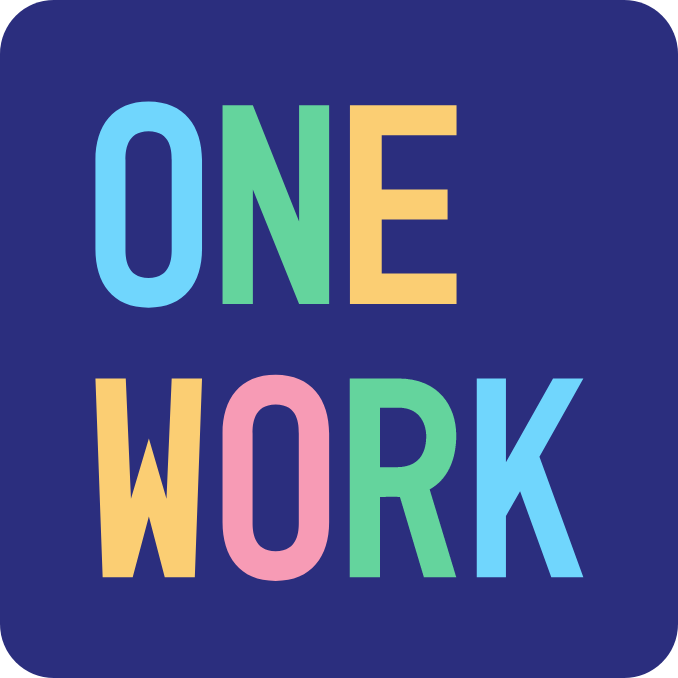Impactfully No. 92: My Fellow Americans
Louisiana mints a new city to separate a weathly enclave from its neighbors, jeopardizing local services in the process, and five states fail to submit a climate action plan, forfeiting a path to $500 million in Inflation Reduction Act grants.

If you don't like the way your city is run, why not create a new city?
So goes the thinking in St. George, Louisiana's first new city in two decades and the subject of three separate ballot measures over the past 10 years. We'll dig into this trend and its impacts below. I also pulled together a number of small business roles in our job opportunities list this week, so if you like the idea of joining a smaller team where you can have an outsize impact, take a look!
~ Greg
What we're reading
The Louisiana Supreme Court has paved the way for St. George to break off from the wider Baton Rouge area. This is part of a pattern of wealthier parts of town forming their own cities to break up school districts and their associated governance. (NYT)
- Over 10 years ago, the residents in this part of Baton Rouge were frustrated with school performance and wanted to form a new school district where their tax dollars would be better spent. Those efforts failed, so they worked towards a ballot measure that would incorporate St. George as a separate city.
- After failed votes in 2015 and 2019, the most recent measure passed. But it was locked up in the courts until the Supreme Court weighed in.
- Roughly 100,000 people will be part of the new city, making it one of the state's largest.
- In researching this further, I found that this situation has already occurred in Alabama, Tennessee, and Louisiana, and that, unsurprisingly, this is exacerbating a racial divide between districts.
- It kind of feels like NIMBY – that's "not in my backyard," parlance for communities that quash, for example, affordable housing developments and city infrastructure in their neighborhoods. It's also decidedly not NIMBY: the city has already been built.
- It also kind of feels like gerrymandering, but it's not gerrymandering. They're redrawing city lines in a way that carries the same ethically dubious socioeconomic and racial impacts.
- If it was a one-off situation, I would be frustrated but not worried. We're starting to see a series of data points, and I'm not sure I want to live in a world where we subdivide our communities to the detriment of the whole.
One of the biggest pools of funding in the Inflation Reduction Act is reserved for combating emissions. States received an initial $3 million grant after submitting a climate action plan, and this first step enabled them to receive future grants up to $500 million each. (Inside Climate News)
- Five states chose not to submit a plan: Iowa, Kentucky, South Dakota, Wyoming, and...wait, Florida?
- Might be biased as a Tampa Bay local, but we aren't the most resilient when it comes to extreme weather. Flooding from hurricanes is common, but even summertime thunderstorms are enough to fill certain streets. And then you have Miami.
- I also have ties to Cedar Rapids, IA which experienced its own major flooding event in 2008. Turns out that was the sixth largest FEMA disaster declaration at $848 million.
- $3 million is not that much on its own, but it's the failed promise of future grants that gets me here. I'm seeing shades of the Medicaid expansion here as well – financial assistance from the federal government that goes ignored for political reasons.
Job of the week
I've been a fan of this week's featured company, Project Canary, for a while now. They provide continuous monitoring technology for the oil and gas industry, helping reduce greenhouse gas emissions due to leaks – the canary in the coal mine as the name implies.
Public benefit corporation? Check. Certified B Corp? Check and check.
They have a number of senior-level roles available this week, including a Director of Sales based out of their Denver office. If you enjoy traveling for work, this is the one for you: they're estimating 40% of your time will be away from the office, making this a great option to get out of the office while you're taking climate action.
Community roundup
- The clean energy industry faces a bottleneck at permitting that prevents them from taking advantage of Inflation Reduction Act tax incentives. In response, the White House Council on Environmental Quality has released new rules that make it easier to pass the environmental review – even bypassing it in some cases. (NYT)
- In the same vein, the Treasury Department has loosened sourcing requirements for graphite, a key mineral used in electric vehicles. (Axios)
- This is a big deal for consumers, because the tax credit associated with EVs can only be claimed if the vehicle does not include components and minerals from rivals like China and Russia.
- We won't find out if additional vehicles qualify for the credit until next year, but if you're thinking of getting an EV in 2024, your patience might be rewarded if you wait.
- The AFL-CIO has released a new report that shows a disproportionate number of workplace deaths impact people of color. (NBC News)
- Separately, legislators from Florida and Arizona are passing laws that shift responsibility for workplace safety from employers to employees.
- I'm reminded of articles about migrant child labor and injuries supporting some of the biggest brands in America. Safety ought to be a non-negotiable, right?
- Students have been challenged to develop gardens in the greater DC metro area as part of a program called Wild Visions associated with the National Wildlife Federation. Some of the gardens go beyond beautification – one of them aims to draw attention to the migrant justice movement, for example. (Grist)
- The Justice Department announced that they would recommend easing restrictions on marijuana. Doing so begins a rule-making process that will be subject to public comment and likely challenges. (NYT)
- The Supreme Court rejected a challenge to a Texas law that automatically lets senior citizens enroll in vote-by-mail but excludes other participants. (USA Today)
- The issue appears to be framing: plaintiffs argued that excluding people was age-based discrimination protected by the 26th Amendment, and Texas countered that making it easier for some people did not make it more difficult for others.
Hot job opportunities
- Public Relations & Engagement Coordinator – Fors Marsh – Remote
- Senior Software Developer – Arup – San Francisco, CA
- Business Development Manager – COI Energy – New York, NY or Tampa, FL
- Multi-Unit Retail Store Manager – Cotopaxi – Portland and Tigard, OR
- Service Desk Technician – Arbonne – Irvine, CA
- Assistant to Project Coordinator - Paid Internship – Precision General Commercial Contractors – Novato, CA
- Client Service Specialist, Employee Benefits – Burnham Benefits – Irvine, CA
- Business Development Representative – Cope Notes – Tampa, FL
- Customer Success Manager - Risk Assurance – Sensiba – Remote
- Traffic Coordinator - Brand & Creative – Butcherbox – Boston, MA
Hiring for mission-driven talent? Post a job for free on our job board.
Looking for a job? Submit your resume to our talent pool, and let social impact companies come to you.
Resource of the week
When it comes to social impact jobs, there are a bunch of ways to find opportunities. You're reading Impactfully for one, and I wrote about other strategies last year. One of my favorite places to look for innovative, fast-paced, social impact jobs is the Unreasonable job board.
Unreasonable is a major impact investment venture capital firm that backs startups making a difference. You can find jobs in all sorts of areas, like climate, education, and healthcare. Just because they're startups doesn't mean you can't find a high-paying job either – that's one of the benefits of being venture-backed. Be sure to give this job board a look if you enjoy building with a small team.
Test your knowledge
Last week, we dove into the history of greenwashing. Although it feels like we're mired in corporate greenwashing today, the term actually dates back to the 1980s and an essay by Jay Westerveld. In that essay, he chastised hotel chains for their marketing around reusing towels – an act seemingly inspired by environmental impact that actually had its roots in improved profitability.
Maybe they got their greens mixed up?
For this week's trivia question, let's turn to current events: campus protests over the war in Gaza have captured the media's attention over the past few weeks and inspired a series of high-profile police actions, canceled commencements, and Congressional hearings.
To date, roughly how many arrests have been made across college campuses in response to the protests?
Email me your guess, and I'll send one lucky winner a couple of One Work stickers! This number is likely to change, so feel free to cite your source. I'll share the latest count I can find next week.
I am rapidly losing my open-window, cool-breeze mornings, and I'm pretty bummed about it. You can find me on LinkedIn and Threads.
